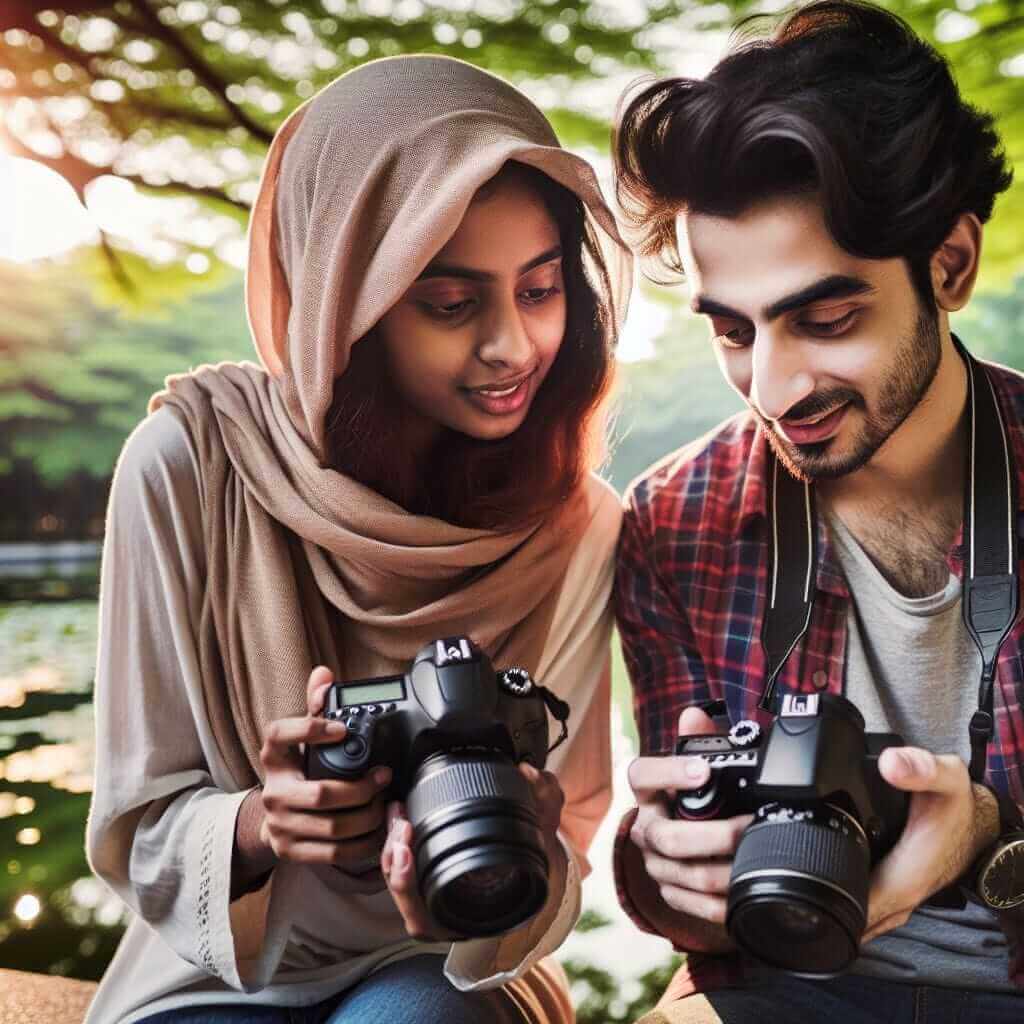The IELTS Speaking test assesses various facets of a candidate’s English language proficiency. It is divided into three parts, each with specific requirements and challenges. An Examiner evaluates the test on four criteria: Fluency and Coherence, Lexical Resource, Grammatical Range and Accuracy, and Pronunciation.
Questions about “a person who is good at photography” can frequently appear in the IELTS Speaking test. This guide provides a detailed breakdown and sample answers to help you excel.
Part 1: Introduction and Interview
Common Questions:
- What are your hobbies?
- Do you enjoy taking photographs?
- Do you know someone who is particularly good at taking photographs?
Sample Answer:
Question: Do you enjoy taking photographs?
Answer: Yes, I absolutely adore photography. It’s a wonderful way to capture moments and express creativity. Although I’m just an amateur, I love experimenting with different angles and lighting conditions to improve my skills.
Part 2: Long Turn
Cue Card:
Describe a person who is good at photography. You should say:
- Who this person is
- How you know this person
- What kind of photographs they take
- And explain why you think they are good at photography
Sample Answer:
“One person who is exceptionally good at photography is my friend, James. I met James during a photography workshop three years ago. He specializes in landscape photography, capturing breathtaking shots of natural scenery. James’s photographs are not only technically perfect but also evoke strong emotions. His ability to find the beauty in mundane scenes is truly remarkable. For example, he often takes photos during the golden hour, creating stunning compositions with vivid colors and dramatic shadows. What makes him stand out is his meticulous attention to detail and his innate talent for storytelling through visuals.”
Follow-up Questions:
-
What equipment does James use for his photography?
- “James uses a professional DSLR camera and various lenses to suit different shooting conditions. He also incorporates drone photography to get unique aerial shots.”
-
How has James’s photography inspired you?
- “James’s photography has inspired me to appreciate the small details in life and to experiment with different photographic techniques. His work has also taught me the importance of patience and perseverance in capturing the perfect shot.”

Part 3: Two-way Discussion
Examiner’s Questions:
-
Why do you think people enjoy taking photographs?
- “People enjoy taking photographs because it allows them to preserve memories, express creativity, and share their experiences with others. In today’s digital age, photography has become an accessible way for people to document and celebrate their lives.”
-
How has the advent of smartphones changed the field of photography?
- “Smartphones have revolutionized photography by making it more accessible and convenient. With advanced camera technology, even amateurs can take high-quality photos. Additionally, social media platforms have provided a broader audience for photographers to share their work and get instant feedback.”
-
Do you think a beautiful photograph can influence people’s opinion on something? How?
- “Absolutely. A compelling photograph can convey powerful messages and influence people’s opinions by evoking emotions and raising awareness. For instance, impactful images of environmental issues can mobilize support for conservation efforts.”
Essential Vocabulary and Structures for a High Score
Key Vocabulary:
- Capture (verb) /ˈkæp.tʃər/: to take a photo of something (e.g., He managed to capture a beautiful sunset.)
- Composition (noun) /ˌkɒmp.əˈzɪʃ.ən/: the arrangement of elements in a photograph (e.g., His composition in this photo is outstanding.)
- Aesthetic (adjective) /esˈθet.ɪk/: concerned with beauty or the appreciation of beauty (e.g., Her aesthetic sensibility is evident in her photography.)
- Exposure (noun) /ɪkˈspəʊ.ʒər/: the amount of light per unit area reaching the image sensor (e.g., Adjusting the exposure can significantly change the mood of a photo.)
Advanced Structures:
- To be particularly skilled at…
(e.g., She is particularly skilled at capturing candid moments.) - What sets him/her apart is…
(e.g., What sets her apart is her ability to tell a story through each shot.) - Not only… but also… for emphasis
(e.g., His photos are not only beautiful but also deeply meaningful.)
Example Usage:
- “Lily is particularly skilled at macro photography. What sets her apart is her ability to highlight the intricate details of tiny subjects, creating images that are both aesthetic and captivating.”
Exam Preparation Tips
- Practice Regularly: Enhance your fluency and coherence by regularly discussing various topics.
- Expand Vocabulary: Learn and use advanced vocabulary and idiomatic expressions related to photography.
- Mock Tests: Perform full mock tests to get accustomed to the test format and time constraints.
- Feedback: Obtain feedback from experienced teachers or participate in speaking groups to identify areas for improvement.
Incorporating these strategies into your exam preparation will help you achieve a higher band score in the IELTS Speaking test. By understanding the typical questions, practicing with high-quality sample answers, and using a rich vocabulary, you’ll be well-prepared to discuss topics related to photography or any other subject confidently.